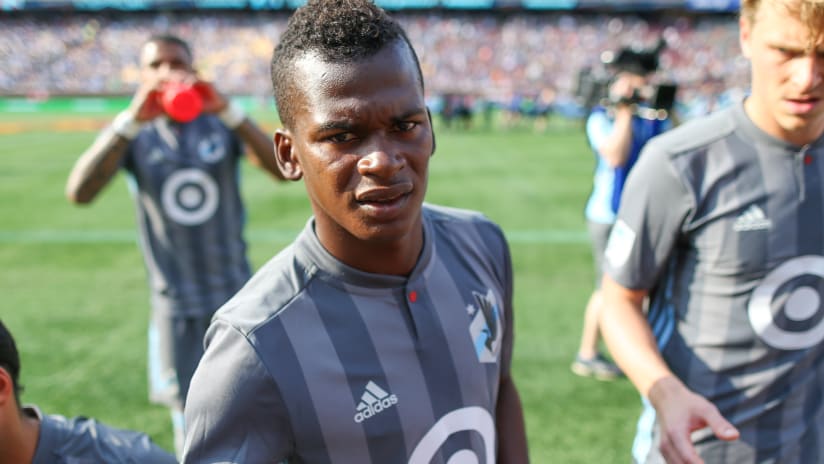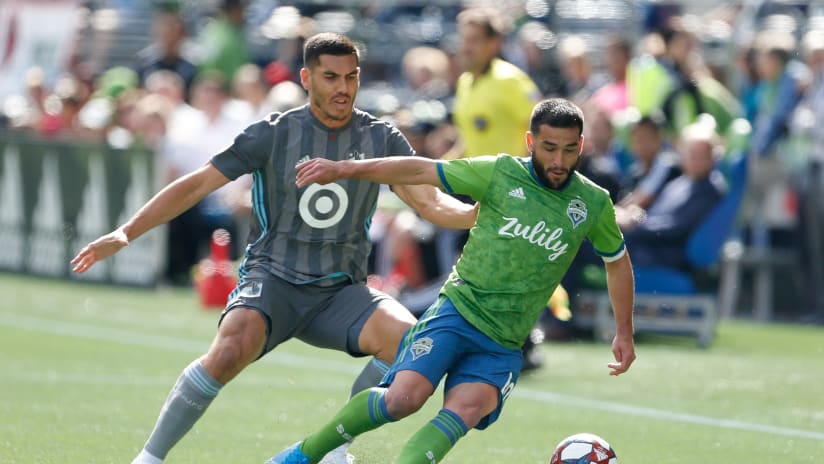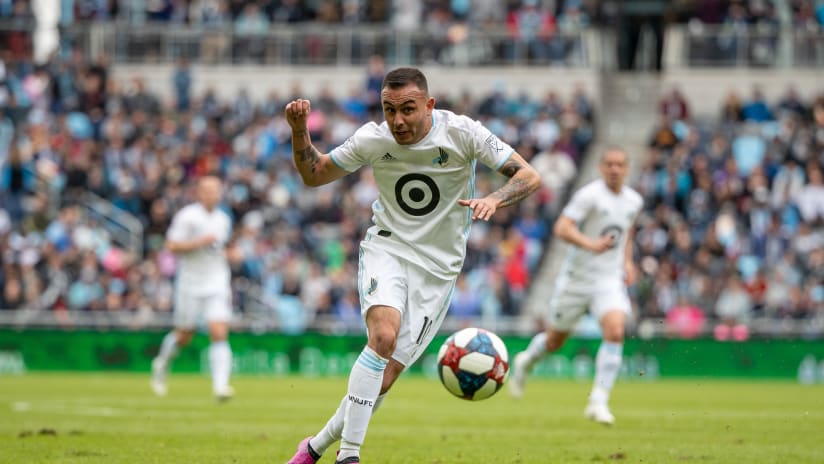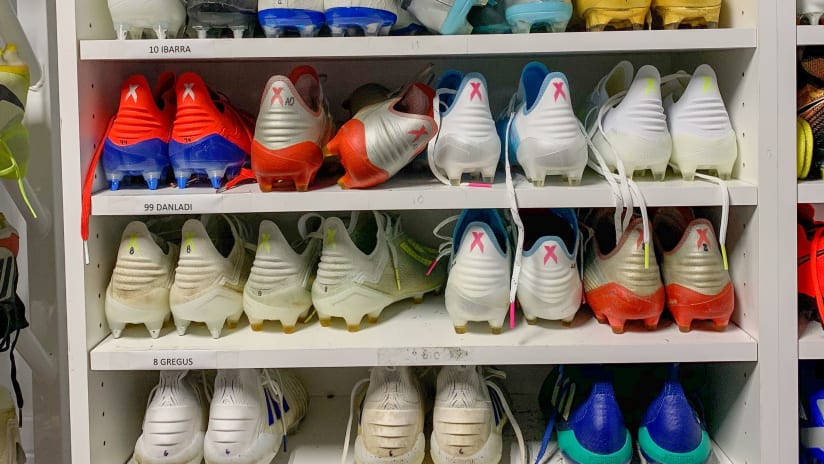At first it might seem like there’s nothing subtle about Darwin Quintero. The spotlight has, after all, rarely left Minnesota United’s first Designated Player since his signing was announced on March 30. He leads the team in goals with six and is tied for second in assists despite missing the team’s first five matches. Never mind that “Designated Player” is at its heart a purely financial designation — a bit of logistical jargon that’s acquired the sheen of “All-Star” without having anything strictly to do with performance. Quintero arrived in Minnesota freighted with expectations about what he would do on the pitch and few would argue he hasn’t lived up to them, particularly after his and the team’s first hat trick in MLS against Toronto FC on July 4.
But there’s more to it than that. It’s become popular in certain analytical basketball circles to talk about a player’s gravity on the court, meaning the pull they exert on the game around them, more or less. Steph Curry brings a tremendous amount of offensive gravity to the Warriors that begets open looks for his teammates. A defensive terror like Rudy Gobert exerts defensive gravity as players work to avoid going at him. And Darwin provides a kind of offensive gravity in the final third that MNUFC did not have before.
“When it comes to players in that No. 10 role,” said Head Coach Adrian Heath, “the midfield of the opposition don’t know where he is behind them and the two central defenders can always see him, but he is too far away from them for them to affect him. He always tries to find that optimum position in between the lines. Once he gets round, he can beat you on the dribble and he can beat you with a pass.
“If you were to ask any of the opposition — I know from speaking to the coaches of the opposing team after games — they are so worried about the little holes that he finds,” he continues. “It affects the formation of the opposition. He drags people into areas that they don’t want to be. We probably have not made the most of some of his work of dragging people out to spots they don’t want to go.”
The Loon who’s made the most of those gaps in the opposition’s defense so far is midfielder Miguel Ibarra. Ibarra was already showcasing a newfound confidence after a lackluster first season in MLS when Quintero joined the team, and now he leads the team with five assists (three of them match-winners) and four goals of his own (one of those a match-winner).
“Before he even came into the team,” said Ibarra, “he watched a game from up in the stands and he told me I am a great player with great ability, but he was going to make me a better player. Him coming in, he has already showed me a lot and I am still trying to learn from him. Other guys have seen what he has done and he has become a leader even though he doesn’t speak English that well. Everybody sees by the way he plays and his presence. Right off the bat once he came in and talked to me after the game, right away I was like, ‘I have more to give and I can do more.’”
That ability to be a leader — to both inspire others and hold them accountable — is something that Minnesota United was looking for when it signed Quintero, but it’s not exactly the kind of thing you can see on tape or measure in a boxscore. As with many things, you can try to predict who will be a leader on a team, but you can rarely tell for sure in advance. Time and adversity will ultimately determine who steps up.
“With limited English he has risen to the top of our leadership group,” said Assistant Coach Mark Watson. “That is something we needed as well. We want more character and we want more leaders in the group. He has played the game at a very high level for a long time and he knows what the locker room needs to be like. Sometimes it is lead by example and sometimes it is speaking to the group about things that happened in a game or keeping your standards up. Other times it is little one-on-one conversations. You see it in many different ways.”
It’s not all serious responsibility, though. One of the ways is knowing when to have fun, to keep it light. When the team arrived in Portland on his first trip with the club, he broke out a Bluetooth speaker and blasted Colombian hip-hop and dance music in the baggage claim. This week, as players at training stood in front of a camera and predicted whether France or Croatia would take home the World Cup, he jumped in behind them and shouted, “COLOMBIA!” If you’ve seen him score any of his six goals so far this season, you’ve seen some of his celebrations, which range from dabbing to cartwheels to whatever this is. As it turns out, they all come from his son.
“All of his celebrations, his son tells him what to do and he does them,” says Ibarra. “There was one where his son told him to do a flip or something and he had to go back and tell him, ‘You’re going to have to [pick] something else because I don’t want to get injured.’ His son is always looking up videos or dances that he can do.”
Much like Francisco Calvo, Quintero wears his heart on his sleeve when it comes to his dedication to his family, as with his son’s goal celebration suggestions or dedicating his hat trick to his wife on her birthday. And his talent is obvious to anyone who watches him. He’s the kind of player, the coaches say, who elevates those around him purely through his ability and experience. But he’s done more than that, making his mark on the team through his actions away from the pitch as well, and this is perhaps at last where we find something subtle, something not larger-than-life about the diminutive attacker: his dedication to the work itself.
“Football is not all wine and roses all the time,” said Heath, reflecting on Darwin’s personality and how he’s affected the team as a whole. “You have a lot of downs with the ups. In fact, the downs are far more than the ups — trust me, having done this a long time. You can’t let that affect the way that you come in and work.
“The great thing about Darwin is he comes in every morning,” Heath said, “with a smile on his face.”





